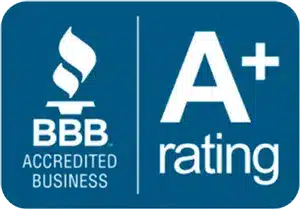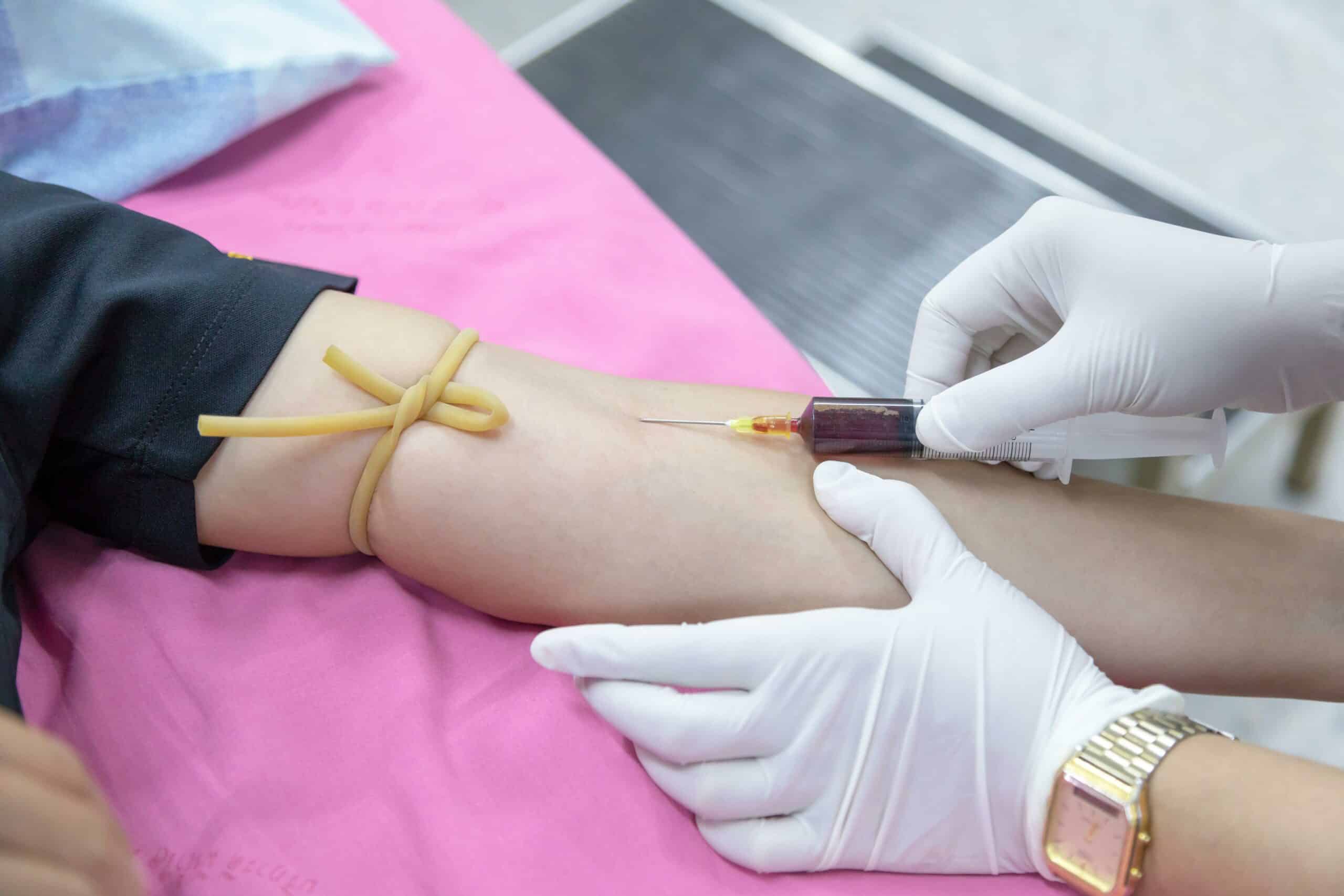As of 2022, an estimated 3.8 million people were diagnosed with HIV. Among them, 86% knew their status, and 71% were receiving treatment. So, if you want to do your HIV testing in Chickasha, OK, get tested at Equality Health. Our advanced HIV testing, like antibody testing, antigen tests, and nucleic acid tests (NATs), will help you detect HIV viruses that threaten opportunistic infection. We also provide HIV testing with pre-test counseling and post-test support. So call us today to test and find out your HIV status!
Understanding HIV Testing
You can simply understand HIV (Human Immunodeficiency Virus) as an infection that attacks your body’s immune system. If you don’t test and treat HIV on time, it leads to the most advanced stage, where you’ll have AIDS (Acquired Immunodeficiency Syndrome).
HIV spreads from the infected person’s body fluids, like vaginal fluids, blood, semen, and breast milk. This virus doesn’t spread through hugs, kisses, or sharing food. But it spreads from a mother to her baby.
There are two main subtypes of HIV:
- HIV-1: It is found all over the world and is transmitted more easily than HIV-2. Around 95% of people who live with HIV have HIV-1. You need to be more careful if you have HIV-1, as it progresses more quickly than HIV-2.
- HIV-2: HIV-2 is mostly limited to West Africa. HIV-2 transmits hardly from person to person as compared to HIV-1. It also takes a longer time for this infection to turn into AIDS.
40% of HIV infections are transmitted by individuals who don’t have any idea about their positive HIV status. So, you should do HIV testing to keep yourself and your sexual partner safe. The potential health complications and risks associated with untreated HIV lead to various infections, like:
- Pneumocystis pneumonia: Causes a fungal infection.
- Candidiasis: Causes inflammation and a white coating on your mouth, tongue, or vagina.
- Tuberculosis: It is associated with HIV and can even cause the death of people with AIDS.
- Cytomegalovirus: Attacks your healthy immune system.
Our HIV Testing Services in Chickasha, OK, Include
We provide antibody tests, antigen tests, and nucleic acid tests as our HIV testing services in Chickasha, OK. Our professional considers all five Cs while doing the HIV tests:
- Consent
- Confidentiality
- Counseling
- Correct test results
- Connection to HIV prevention, treatment, and care
Antibody Tests
HIV antibody tests are also known as serologic tests. Here, our medical professionals look for antibodies to HIV in your oral fluid or blood. Our medical professionals draw blood from your vein, oral fluid, or fingerstick during this test.
Advantages:
- It costs you less than any other HIV test.
Limitations:
- If you test too soon, sometimes it shows false negative results.
Accuracy: Around 1.5% (15 out of 1000) of antibody tests are false positives.
Testing Window Period: This test can detect HIV most rapidly, i.e., after 23 to 90 days of exposure.
Antigen Testing
This test identifies proteins present on the surface of HIV. It is usually developed prior to the HIV antibodies.
Advantages:
- It identifies your HIV infection prior to antibody tests.
- This test gives you highly accurate results when it is done between the proper window periods.
Limitations:
- You’ll get erroneous positive results due to cross-reactivity with other substances in the body.
- You should perform an antibody test after you get a positive result from the antigen test to confirm the diagnosis.
Accuracy: A combined antigen/antibody test gives you a 99% accurate result.
Testing Window Period: This test detects your HIV status 18 to 45 days after exposure.
Nucleic Acid Tests or PCR Tests
This test detects your genetic material, called DNA or RNA, from the virus. It can detect your early infection even before the antibodies have formed.
Advantages:
- It is highly accurate, so there’s less chance of getting false positive or negative results.
- It gives you proof of HIV infection even when an antibody or antigen test gives you ambiguous results.
Limitations:
- This test needs specialized lab equipment and qualified personnel to get accurate results. These reasons limit this test’s applicability in certain circumstances.
- It costs you more than other methods of HIV testing.
Accuracy: It is 99.97% accurate.
Testing Window Period: It has the shortest testing window. So, HIV can be detected from 10 to 33 days after exposure.
HIV testing will help you live a longer and healthier life. So, book an appointment or call us today. Our professionals are ready to take your HIV test!
Procedure and Preparation for HIV Testing
We understand that you can be a little scared or nervous while preparing yourself for an HIV test. But you don’t need to be afraid of anything. Our professional got you covered from pre-test counseling to post-test counseling after your test results.
Step 1: Pre-test Counseling
Our medical professionals try to address your concerns before starting the testing procedure. At first, we talk with our client and ask various questions about sexual history, consumption of drugs, and personal health data. Then we briefly explain:
- Procedures involved in HIV testing
- Testing method and window time
You, too, are welcome to ask as many questions as you like to clarify your doubts. Then, we determine your symptoms and recommend a convenient test option.
Step 2: Sample Collection Method
Our healthcare professionals collect samples from your blood, urine, or oral fluid. We do ask for your feedback and collect samples using the method that you’re most comfortable with. Then, we do your HIV testing through any of our three testing options: an antibody test, an antigen test, or a nucleic acid test.
Step 3: Laboratory Testing Procedure
We collect your sample and take it to our lab for testing. Then, we carry out the steps depending on the HIV test type.
- We analyze whether the sample contains HIV antibodies using enzyme immunoassays (EIAs) for the antibody test.
- Then, we test the sample to look for HIV proteins like the p24 antigen.
- Lastly, using polymerase chain reaction (PCR) or other nucleic acid amplification methods, we measure the virus’s genetic material (RNA or DNA).
Step 4: Turnaround Time for Receiving Test Results
We’ll send you your HIV antibody test results within a few minutes to a few days. The confirmatory NAT result will take a week or longer.
You’ll get your test results as any of the following:
- Positive: It means you’re HIV positive.
- Negative: It means you’re HIV-negative.
- Indeterminate: It means that your HIV result wasn’t clear. So, your test needs to be repeated.
Step 5: Post-test Counseling and Support for Individuals
Our medical professionals will provide you with post-test counseling, no matter what your result is. If you test positive, we will provide basic information about HIV treatment in Chickasha. Even if you test negative, we’ll briefly explain to you the preventive measures to be safe from HIV in the future.
If you have any questions about the test, you can ask our professionals, and they’ll reply to everything with clarity.
The sooner you start your test, the better! So, without any delay, contact us today for your HIV testing.
Cost of HIV Testing in Chickasha, OK
Our clinic aims to provide the most affordable HIV testing in Chickasha, OK, for HIV-1 and HIV-2. If you are insured, we directly bill everything to the insurance company. You don’t need to worry, even if you’ve not done insurance yet. We will work to provide insurance for you if you are uninsured and may be able to help with those premiums through our foundation. If we can not get you an insurance plan setup for any reason your test is still free here at Equality Health.
Call us today to book an appointment for HIV testing!
HIV Testing Frequency and Risk Factors
We’d suggest you do your HIV test based on the following categories:
- Sexually active: If you’re sexually active, we commend you for doing your HIV testing in Chickasha, OK, annually. If you’re engaged in a high-risk activity or have multiple partners, we’d suggest you do HIV testing every three to six months.
- Inject drugs: If you inject drugs, we’d suggest you do regular HIV testing at least one or two times a year.
- Pregnant: If you’re pregnant, we’d suggest you do early HIV testing in the first trimester. You should consider doing a retest in the third trimester if the risk persists.
Here, we’ve listed some of the risk factors for HIV transmission:
- Unprotected sexual activity: Use condoms when engaging in sexual activity such as vaginal, anal, or oral contact.
- Sharing needles: While sharing syringes, needles, or other drug equipment, you’ll have a higher chance of HIV transmission. You should use clean needles and participate in safe initiatives to reduce the risk.
- Body fluids: The virus is only transmitted through certain body fluids, such as blood, semen, vaginal fluid, rectal fluid, and breast milk.
Contact Equality Health for HIV Testing in Chickasha, OK
Doing your HIV test results in long-term benefits like living a healthy and long life and preventing AIDS. At Equality Health, we provide the best testing services and keep your health data confidential. If you test positive, we will also provide HIV treatment after the post-test counseling. Contact us at (405) 761-2762 if you’re thinking of doing an HIV test in Chickasha, OK. We also provide services for Hepatitis C Treatment and STD treatment in Chickasha.
Frequently Asked Questions (FAQs)
It may take a few minutes to a couple of days for you to receive the results of your HIV antibody test. But if you want your confirmatory NAT result, it’ll take a week or even longer. You’ll get your results in the three formats presented below:
- Positive: You’re HIV-positive.
- Negative: You’re HIV-negative.
- Indeterminate: Your HIV result wasn’t clear. Therefore, a repeat test is necessary.
Yes. In our clinic, we cover HIV testing by insurance in Chickasha, OK. If you already have insurance, we’ll bill everything for insurance. Even if you’ve not taken out insurance yet, you don’t need to worry. We may be able to provide insurance for you through our foundation.
Yes, you can get tested for HIV anytime, as it will always be beneficial for you. Sometimes, your partners are not transparent about their sexual activity. So, if you’re in any doubt, you can do an HIV test even if you have no symptoms. Some of you get very mild symptoms, so if you’re sexually active, we suggest you do your HIV test annually.
Our clinic provides three test options to diagnose HIV. They are:
- Antibody tests: In this test, our medical professionals draw blood from your vein, oral fluid, or finger stick. Then, we look to see if there are any antibodies to HIV in your oral fluid and blood or not.
- Antigen tests: In this test, we identify proteins present on the surface of HIV that are usually developed prior to the HIV antibodies.
- Nucleic acid tests or PCR tests: In this test, we detect your genetic material called RNA or DNA. It detects your early infection, even before antibodies are formed.



